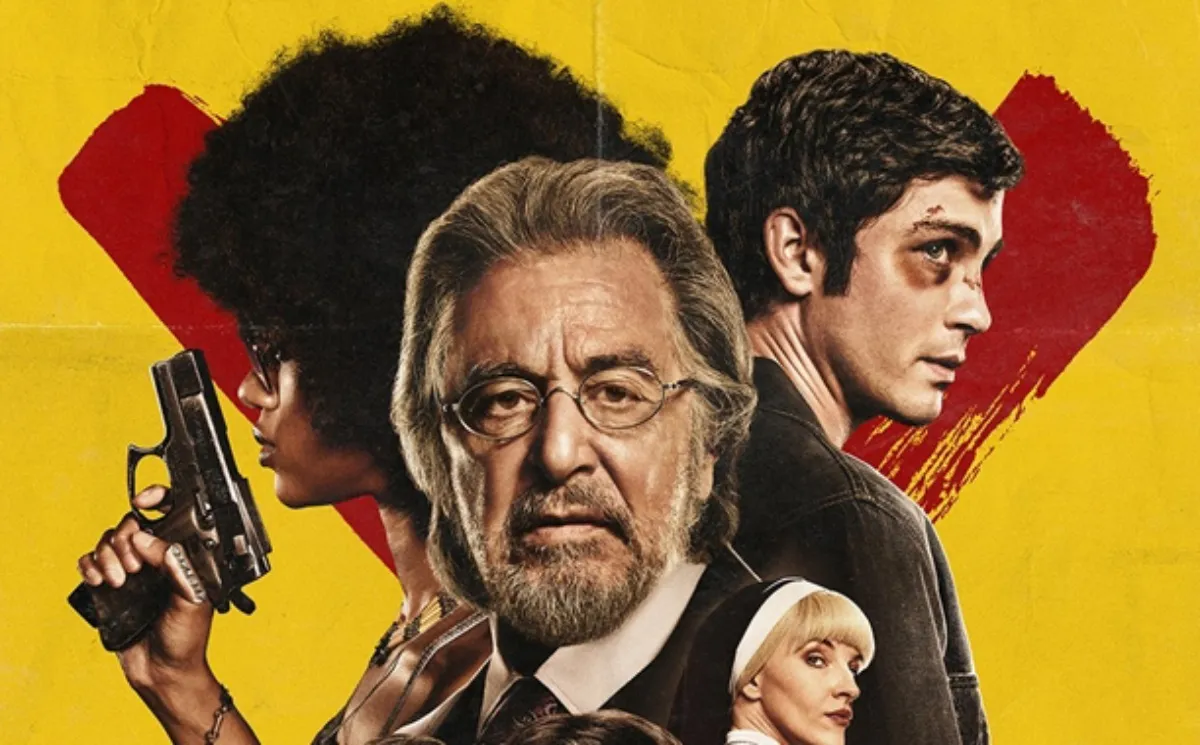Hunters is a show from Amazon Prime about a group of Nazi hunters led by Al Pacino in 1970s New York City. While some have been enjoying the series because they love watching Nazis being hunted down, there are some non-historical details and scenes that have been put in the show which have caused the Auschwitz Memorial to call out the production.
Auschwitz was full of horrible pain & suffering documented in the accounts of survivors. Inventing a fake game of human chess for @huntersonprime is not only dangerous foolishness & caricature. It also welcomes future deniers. We honor the victims by preserving factual accuracy. pic.twitter.com/UM2KYmA4cw
— Auschwitz Memorial (@AuschwitzMuseum) February 23, 2020
“Auschwitz was full of horrible pain and suffering documented in the accounts of survivors,” the social media administrators of the Auschwitz Memorial said in a statement to Twitter. “Inventing a fake game of human chess for @HuntersonPrime is not only dangerous foolishness and caricature. It also welcomes future deniers. We honor the victims by preserving factual accuracy.”
During the first episode of Hunters, as Yahoo explains, “a Jewish chess master held captive at Auschwitz is forced to play a game of chess on a checkerboard field with real prisoners being murdered.”
David Weil, creator/co-showrunner of the show whose grandmother was a survivor of the Nazi death camp, defended his choice in a statement:
“While Hunters is a dramatic narrative series, with largely fictional characters, it is inspired by true events. But it is not documentary. And it was never purported to be. In creating this series it was most important for me to consider what I believe to be the ultimate question and challenge of telling a story about the Holocaust: How do I do so without borrowing from a real person’s specific life or experience?
In speaking to the ‘chess match’ scene specifically … this is a fictionalized event. Why did I feel this scene was important to script and place in series? To most powerfully counteract the revisionist narrative that whitewashes Nazi perpetration, by showcasing the most extreme — and representationally truthful — sadism and violence that the Nazis perpetrated against the Jews and other victims.
And why did I feel the need to create a fictional event when there were so many real horrors that existed? After all, it is true that Nazis perpetrated widespread and extreme acts of sadism and torture — and even incidents of cruel ‘games — against their victims. I simply did not want to depict those specific, real acts of trauma.
If the larger philosophical question is, can we ever tell stories about the Holocaust that are not documentary, I believe we can and should.”
This is an interesting conversation because something similar came up during Quentin Tarantino’s Django Unchained, in which he depicted “Mandingo fighting” which was something that Tarantino said he had been aware was true, but there is actually no historical evidence for that particular type of brutality. However, a major difference is that Weil is Jewish and has ties to that history and Tarantino does not.
No group is a monolith and in speaking with my Jewish co-worker about this topic, she said that as a descendant of survivors the scene didn’t offend her, but she did see how it could be offensive to others.
The double-edged sword of scenes like this chess moment and the Mandingo fighting scene is that we already live in a society that rejects history, is not intellectually driven, but also loves to “own” people by proving that something was “faked” and ignore all the actual historical facts. There are still so many true stories that haven’t been told, that I can see how a hyper-violent focus can be jarring, especially when scenes are made up to show what is already a genocide in a fictional light.
However, I leave the final verdict to you. Do you think these kinds of scenes are good in the long run? Or does the fictionalization element take away some of the need for it to be strictly historically accurate, especially in our post-JoJo Rabbit world?
(via Yahoo)
Want more stories like this? Become a subscriber and support the site!
—The Mary Sue has a strict comment policy that forbids, but is not limited to, personal insults toward anyone, hate speech, and trolling.—










Published: Feb 25, 2020 01:14 pm